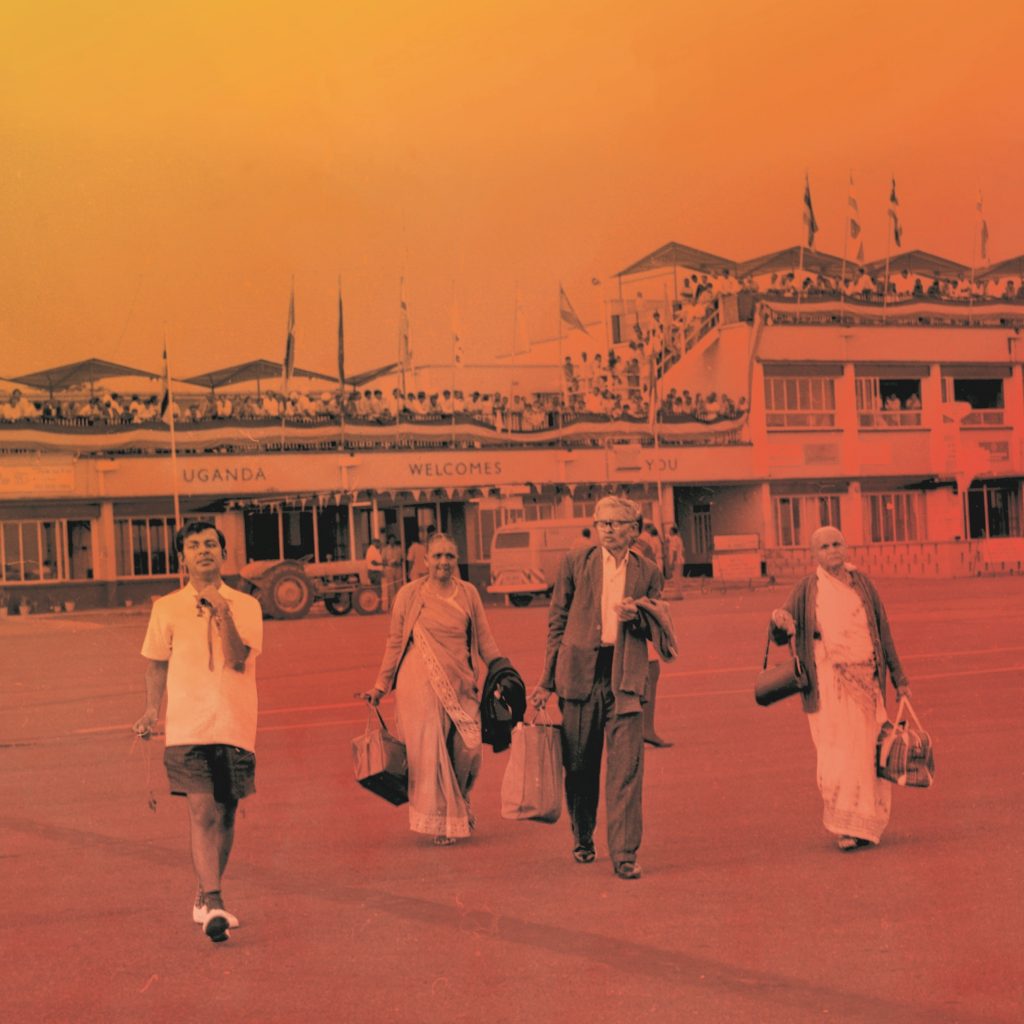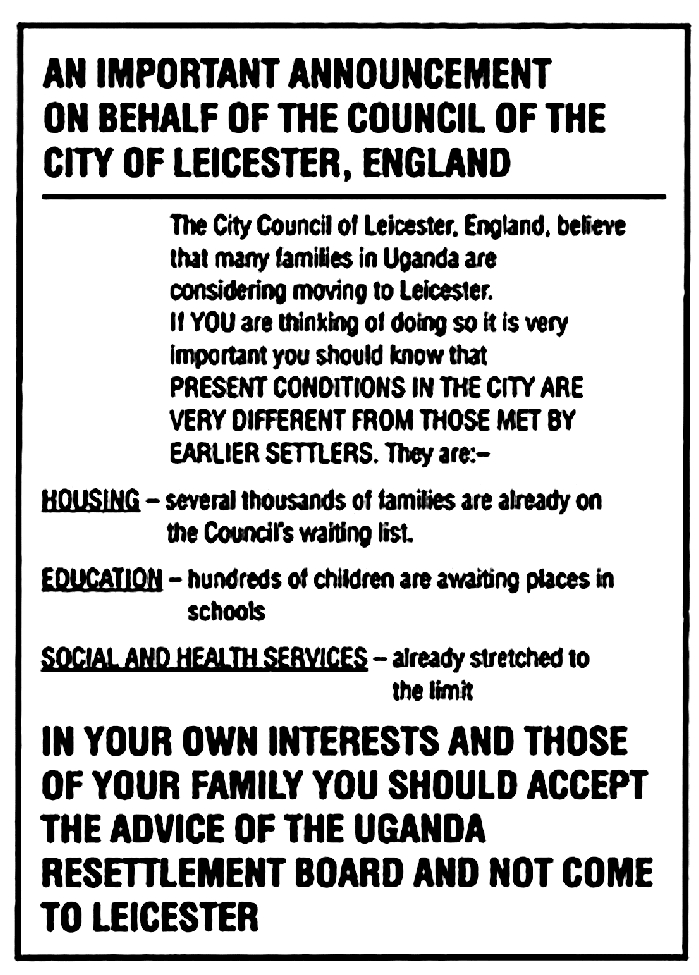Arrival/Welcome to the UK


In less than 24 hours the Ugandan Asians went from the idyllic climate of their East African home to a typical cold and damp British autumn – the type of weather many had never experienced before, and certainly weren’t prepared for.
Of the approximately 29,000 Ugandan Asians that arrived in the UK, almost three quarters had nowhere to live. These families faced cold weather and dismal living conditions in former military camps, which were re-opened as ‘resettlement camps’. Homeless and jobless, each family had just £55 with which to rebuild their lives. As the government came under increasing pressure from the far right over race and immigration, it fell to charitable organisations like the Women’s Royal Voluntary Service (WRVS) to provide suitable clothing, identify places to live and advice of job opportunities.
There was a level of national sympathy for Ugandan Asians as victims of terror. But in places with existing migrant communities, support for the right-wing National Front soared.
All these places wanted to deter Ugandan Asians, but Leicester became notorious when it went to the lengths of advertising in the Uganda Argus urging Ugandan Asians not to come to the city.
Although encouraged to settle away from the towns and cities with existing migrant populations, it is perhaps inevitable that many sought the familiarity and security that came from these established communities. In this respect, Leicester City Council’s advert in the Ugandan Argus backfired as it made people aware that there was already an established Asian community in the city – a place that many had never heard of before.
Leicester already an East African Asian community of around 20,000, many coming from Kenya in the late 1960’s. As a result, some Ugandan Asians already had family and friends here and knew they could find places of worship, familiar foods and shops in the town. But those that did come also faced racism, discrimination, a housing shortage and difficulties with school places. The city council did little to help.
